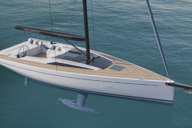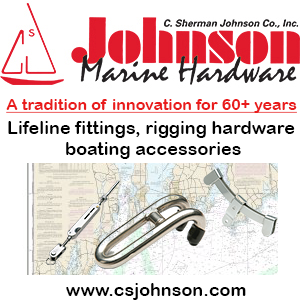 Marine recycling holds great importance for safeguarding the environment, saving energy, and conserving resources. Many items are eligible for marine recycling, such as antifreeze, fishing line, oil filters, and even boats. It’s important to know where and how you can recycle these items.
Marine recycling holds great importance for safeguarding the environment, saving energy, and conserving resources. Many items are eligible for marine recycling, such as antifreeze, fishing line, oil filters, and even boats. It’s important to know where and how you can recycle these items.
Some marinas will take used marine shrinkwrap for recycling. The shrinkwrap should be clean and not mixed with any other materials. If your marina doesn’t recycle it, contact your local town office or transfer station to determine if it may be recycled elsewhere. Recycling of lead acid marine batteries is possible as well, along with the Ni-Mh rechargeables used in some portable marine radios.
Oil and oil filters from marine engines may also be recycled. Some marinas, car mechanics, and other businesses will accept them. Not as many will take used oil filters, but quite a few do. Used motor oil can be recovered from filters, and the metal reused. Despite the fact that they are made of steel, Americans only recycle about ten percent of these filters.
Fishermen can recycle many fishing lines and nets. Some fishing supply stores accept them. Even when nets and other old fishing gear can’t be recycled, it is possible to convert them into electricity through waste-to-energy programs. Other related recyclables include lobster traps, lead sinkers, and fishing magazines.
It’s also good to buy boating products which can be recycled and/or were made from recycled materials. For example, lifejackets with recycled fill are available. When looking for a marina to store your boat, inquire about the marine recycling programs they have in place. Certified clean marinas (a.k.a. green marinas) typically recycle and properly dispose of more items than others.
Many boaters carry fire extinguishers on their motorized boats. When extinguishers can no longer be refilled, they should be recycled so that the metal does not go to waste. According to Earth911.com, you may be able to take the extinguisher to a local fire department, transfer station, or hazardous waste collection.
Marine recycling even extends into the field of clothing. The Henri Lloyd brand now sells waterproof marine clothing products manufactured from recycled materials. When they have worn out, stores that sell the clothes will accept them for recycling. A facility in Japan conducts the actual recycling process and generates the new material for continued production.
What about boat recycling? Yes, it’s also possible to recycle some boats. Recycling boat hulls prevents a great deal of waste. Both metal and polyethylene vessels may be recycled. Fiberglass is much more difficult to recycle. Nonetheless, repairing a boat for continued use remains the best form of marine recycling.
As a recent issue of “Rolling Stone” magazine highlighted, huge quantities of plastic and other debris can now be found throughout the ocean. Only through recycling, cutting back consumption of disposables, and proper waste disposal can we hope to mitigate this problem.
Courtesy of www.marinefuel.com












No Comments